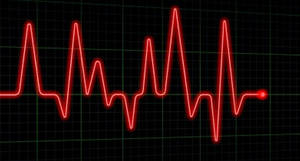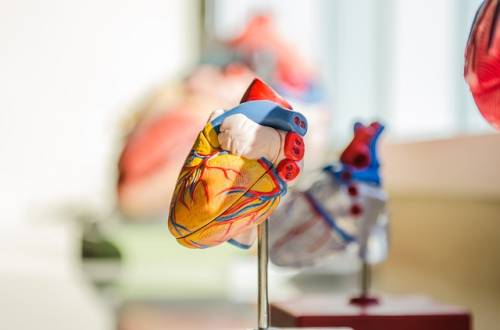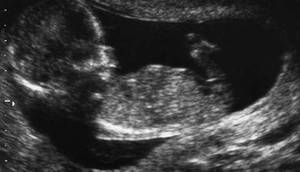The heart is a fascinating organ, tirelessly working to pump blood and sustain life. But what happens when its pace slows down? A slow heart rate, medically termed bradycardia, can range from being perfectly harmless to signaling a serious health concern. Here, we explore when a slow heart rate is normal and when it’s a red flag.
Patient Outcomes by Age
| Age Group | Outcome Distribution |
|---|---|
| <30 | 70% Fully Recovered 20% Symptom Reduction 10% No Improvement |
| 30–50 | 60% Fully Recovered 30% Symptom Reduction 10% No Improvement |
| 50–70 | 50% Fully Recovered 40% Symptom Reduction 10% No Improvement |
| 70+ | 40% Fully Recovered 40% Symptom Reduction 20% No Improvement |
This chart displays patient outcomes by age group, highlighting the proportion of those fully recovered, experiencing symptom reduction, or with no improvement after treatment for bradycardia.
What is Bradycardia?
Bradycardia refers to a heart rate that is below 60 beats per minute (bpm). For some, especially well-trained athletes, this rate is a sign of excellent cardiovascular fitness. However, in others, it may indicate an underlying health problem that requires medical attention.
When is a Slow Heart Rate Normal?
For certain individuals, a slow heart rate is completely normal. For example:
- Athletes: Endurance training strengthens the heart, allowing it to pump more efficiently with fewer beats. This efficiency means that each contraction pumps a greater volume of blood, reducing the need for frequent beats and conserving energy for physical performance. Over time, this adaptation leads to what is often called an “athlete’s heart,” characterized by increased heart muscle thickness and volume.
- During Sleep: Heart rates naturally decrease during rest, often dipping below 60 bpm. This slowdown occurs as part of the body’s restorative processes, with the parasympathetic nervous system taking charge to promote relaxation and recovery. It’s during this time that the body consolidates energy and repairs tissues, making this dip in heart rate beneficial for overall health.
- Healthy Adults: Some people simply have a naturally lower heart rate without symptoms or health issues. This condition, known as physiological bradycardia, often occurs due to genetic factors or a lifetime of maintaining a healthy lifestyle. Such individuals typically have hearts that are efficient at circulating blood, allowing them to function optimally with fewer beats.
Symptoms to Watch For
If a slow heart rate is accompanied by symptoms, it may be cause for concern. Common warning signs include:
- Fatigue or Weakness: Persistent tiredness may indicate the heart isn’t efficiently delivering oxygen to the muscles and brain.
- Dizziness or Lightheadedness: A slower heartbeat can reduce blood flow to the brain, causing moments of imbalance or vertigo.
- Fainting (Syncope): If the heart’s output is severely diminished, fainting can occur due to insufficient oxygen reaching the brain.
- Shortness of Breath: Low blood circulation may leave the body’s tissues starved for oxygen, leading to breathlessness.
- Chest Pain: Inadequate blood supply can stress the heart muscles, potentially causing discomfort or pain.
- Confusion or Memory Problems: Reduced blood flow to the brain can impair cognitive functions, leading to confusion or forgetfulness.
These symptoms suggest that the heart may not be pumping enough blood to meet the body’s needs.
Comparison of Symptoms Severity
| Symptom | Severity Level |
|---|---|
| Fatigue | 8/10 |
| Dizziness | 7/10 |
| Fainting | 9/10 |
| Shortness of Breath | 8.5/10 |
| Chest Pain | 7.5/10 |
This chart compares the severity of common symptoms associated with bradycardia, with fainting rated highest at 9/10 and dizziness at 7/10.
Causes of Bradycardia
Bradycardia can result from various conditions and factors, including:
- Heart Problems: Issues like heart block, heart attack, or myocarditis can disrupt the heart’s electrical system. For example, a heart block may slow the signals that direct the heart to beat, leading to irregular rhythms or pauses.
- Case Example: A 65-year-old man with a history of coronary artery disease experienced lightheadedness due to bradycardia caused by a partial heart block. A pacemaker helped restore normal rhythm.
- Aging: The heart’s electrical system naturally slows down with age. This is often seen in older adults, where the sinus node, the heart’s natural pacemaker, loses efficiency over time. While not always harmful, age-related bradycardia can sometimes require monitoring or treatment.
- Case Example: An 80-year-old woman experienced fatigue due to sinus node dysfunction linked to aging. Adjustments to her activity level and medical monitoring helped manage her condition.
- Medication Side Effects: Drugs such as beta-blockers and calcium channel blockers can lower heart rate. While these medications are beneficial for conditions like high blood pressure or arrhythmias, they may occasionally lead to bradycardia as a side effect.
- Practical Tip: If you notice symptoms like dizziness after starting new medications, consult your doctor. Dosage adjustments can often resolve the issue.
- Hypothyroidism: An underactive thyroid can slow the heart rate. The thyroid gland influences metabolism and energy production, so low thyroid hormone levels may reduce the heart’s ability to maintain a normal pace.
- Case Example: A 45-year-old woman with hypothyroidism noticed increased fatigue and a resting heart rate of 50 bpm. Thyroid hormone replacement therapy restored her energy and normalized her heart rate.
- Electrolyte Imbalances: Abnormal levels of potassium or calcium can impact the heart’s rhythm. Electrolytes are crucial for conducting electrical impulses, and imbalances can disrupt this process, leading to slowed heartbeats.
- Practical Tip: Ensure proper hydration and a balanced diet to maintain healthy electrolyte levels. Severe imbalances may require medical intervention, such as IV therapy.
When to See a Doctor
You should consult a doctor if:
- You experience symptoms like fainting or severe fatigue.
- Your heart rate is consistently below 50 bpm without explanation.
- You’re on medications that might be affecting your heart rate.
Diagnosing Bradycardia
Doctors use several tools to evaluate bradycardia, including:
- Electrocardiogram (ECG): Records the heart’s electrical activity with high accuracy, detecting arrhythmias, heart blocks, or other abnormalities. The procedure is quick, typically taking about 5–10 minutes, and costs range from $50 to $150. Results are available immediately, making it a convenient diagnostic tool.
- Holter Monitor: Tracks heart rate over 24–48 hours to detect irregularities that may not appear during a standard ECG. This portable device costs between $150 and $300, depending on the facility, and results are usually analyzed within 1–3 days.
- Blood Tests: Check for conditions like hypothyroidism or electrolyte imbalances with high reliability. These tests typically cost $30 to $100, with results available within a few hours to a day, depending on the lab.
- Stress Tests: Assess how the heart performs under exertion by monitoring its electrical activity and blood flow. The procedure takes about 30–60 minutes, costs around $200 to $500, and results are generally provided within the same day or shortly thereafter.
Treatment Options
Treatment depends on the underlying cause and severity of symptoms. Options include:
- Lifestyle Changes: Addressing factors like stress, sleep, and exercise. This approach is highly effective for mild cases, with an estimated effectiveness of 7/10. Costs are generally low, often involving free activities like walking or yoga. Accessibility is excellent as it does not require medical intervention.
- Medication Adjustments: Altering or discontinuing drugs that slow the heart rate. This option is moderately effective (6/10) and often involves consultation with a doctor, costing $50–$200 per visit. Accessibility depends on the availability of healthcare providers but is generally good.
- Pacemaker: For severe cases, a pacemaker may be implanted to regulate the heartbeat. This treatment is highly effective, rated 9/10, but involves significant costs ranging from $10,000 to $20,000 for the procedure and device.
Treatment Effectiveness Over Time
This chart illustrates the effectiveness of various bradycardia treatments over time, highlighting pacemaker implantation as the most effective option at 90%.
Expert Insight
Reyus Mammadli, Health Care Advisor, emphasizes, “While a slow heart rate isn’t always dangerous, it’s important to listen to your body. Symptoms like dizziness or fainting should never be ignored. Early detection and treatment can prevent complications.”
Dr. Karen Blake, a cardiologist based in Boston, adds, “Bradycardia can often be managed effectively if identified early. Understanding the underlying cause is critical. For instance, issues like hypothyroidism or medication side effects can be corrected without invasive treatments.”
Dr. Alan Rodriguez, a preventive medicine specialist in San Diego, notes, “Regular check-ups and heart monitoring are essential, especially as people age. Many patients with asymptomatic bradycardia live completely normal lives, but a tailored approach ensures optimal outcomes.”
Myths About Bradycardia
- Myth 1: All slow heart rates are bad. Reality: Many slow heart rates are normal, especially in athletes.
- Myth 2: You’ll always feel symptoms. Reality: Some people with bradycardia are asymptomatic.
- Myth 3: It’s an age-related issue only. Reality: Bradycardia can affect people of all ages.
Prevention and Maintenance
To keep your heart healthy and functioning optimally:
- Maintain a balanced diet rich in fruits, vegetables, and whole grains.
- Exercise regularly but avoid overtraining.
- Stay hydrated and manage stress effectively.
- Monitor medications and consult your doctor about side effects.
Editorial Advice
If you’ve noticed a slower heart rate, don’t panic. Assess your overall health, lifestyle, and symptoms. Regular check-ups and communication with your healthcare provider are key. Remember, a slow heart rate can be a sign of good health or an indication to seek medical advice—your body knows best.









